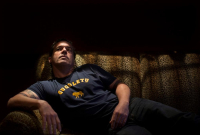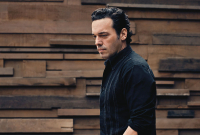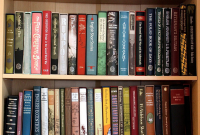Support strong Canadian climate journalism for 2025
Acclaimed author Joseph Boyden released a statement Wednesday in which he apologized for being "too vocal" on many indigenous issues in Canada.
It was the second public statement he has made to address a controversy surrounding his indigenous heritage, which began last month after an investigation into his background by an Aboriginal Peoples Television Network reporter.
The issue made national headlines and sparked a debate on indigenous identity and who has the right to speak on behalf of those communities. The APTN article by Jorge Barrera dug into the different claims of indigenous ancestry the novelist has made throughout his life, and the evidence — or lack thereof — to back it up.
Days later, Boyden defended himself on Twitter, saying he is of "mostly Celtic heritage,’’ but he also has Nipmuc roots on his father’s side and Ojibway roots on his mother’s. In Wednesday’s statement, Boyden took a different tone, saying that he "made mistakes."
He said while his intentions were good, he apologized for letting himself be the "go−to person" in the media for indigenous issues.
"That role should go to those with deeper roots in their communities — wiser and more experienced spokespeople and elders — who have that right and responsibility, and who can better represent their community’s perspective," he wrote.
The statement comes after an interview with the CBC in which the celebrated Ontario author apologized for "taking too much of the airtime" on indigenous issues. The interview will air on CBC Radio’s "Q" on Thursday. In the statement, Boyden described himself as "a white kid" from Willowdale, Ont., with native roots.
"And I’ve always said pretty much the same thing: 'a small part of me is Indigenous, but it’s a big part of who I am,’" he said.
The author also said his "most painful mistake" was to bring the topic of murdered and missing indigenous women and girls into an "unrelated public debate," but he did not elaborate.
Boyden — who is a member of the Order of Canada and was an honorary witness at the Truth and Reconciliation Commission — added that he has been spending the last weeks offline, "choosing to be with my mom and family where we spoke proudly and sometimes very painfully about our heritage and many other things."
He said his silence is not out of a sense of shame, but out of the "desperate need to listen."
"My family and others in these last weeks told me this: I can try and talk and defend and explain all I want, but perhaps it’s time to close my mouth and ask for guidance and truly listen," the statement said.
Boyden has won the Scotiabank Giller Prize and his work was nominated for the Governor General’s award. The Canadian Press attempted to reach him through his publisher Penguin Random House Canada, but he was not immediately available for comment.





Comments